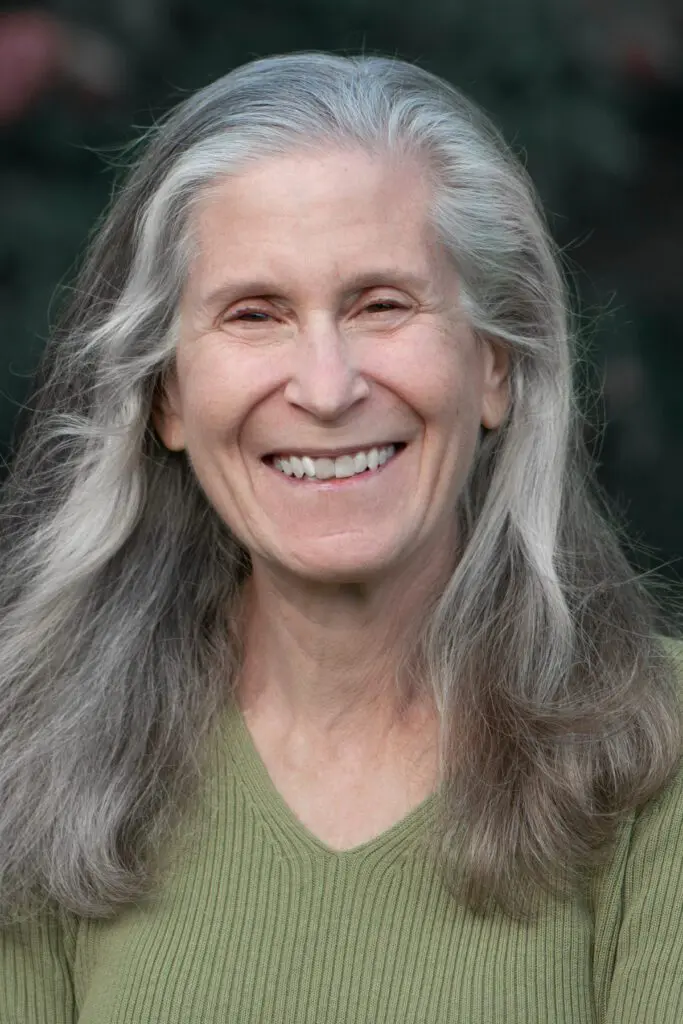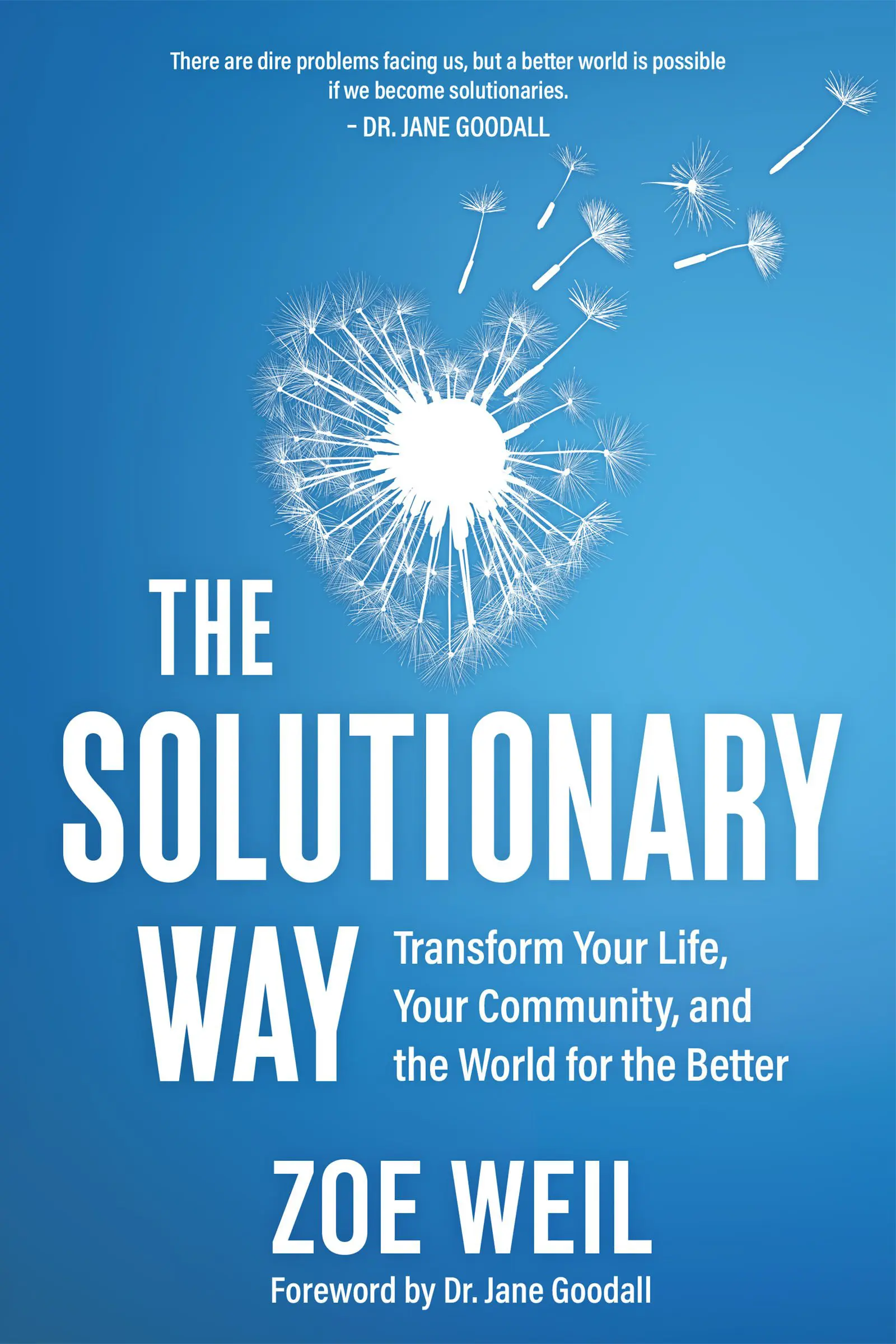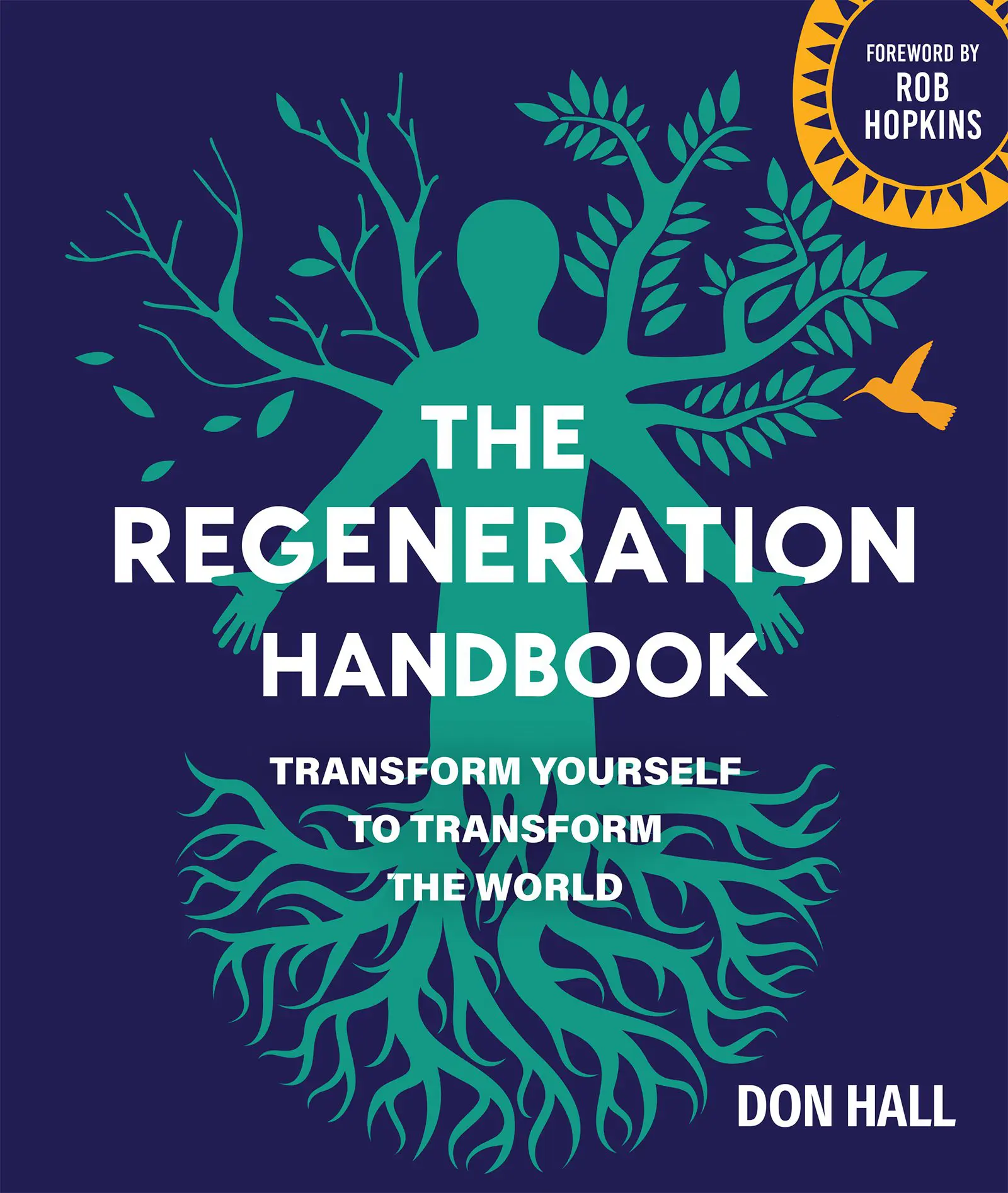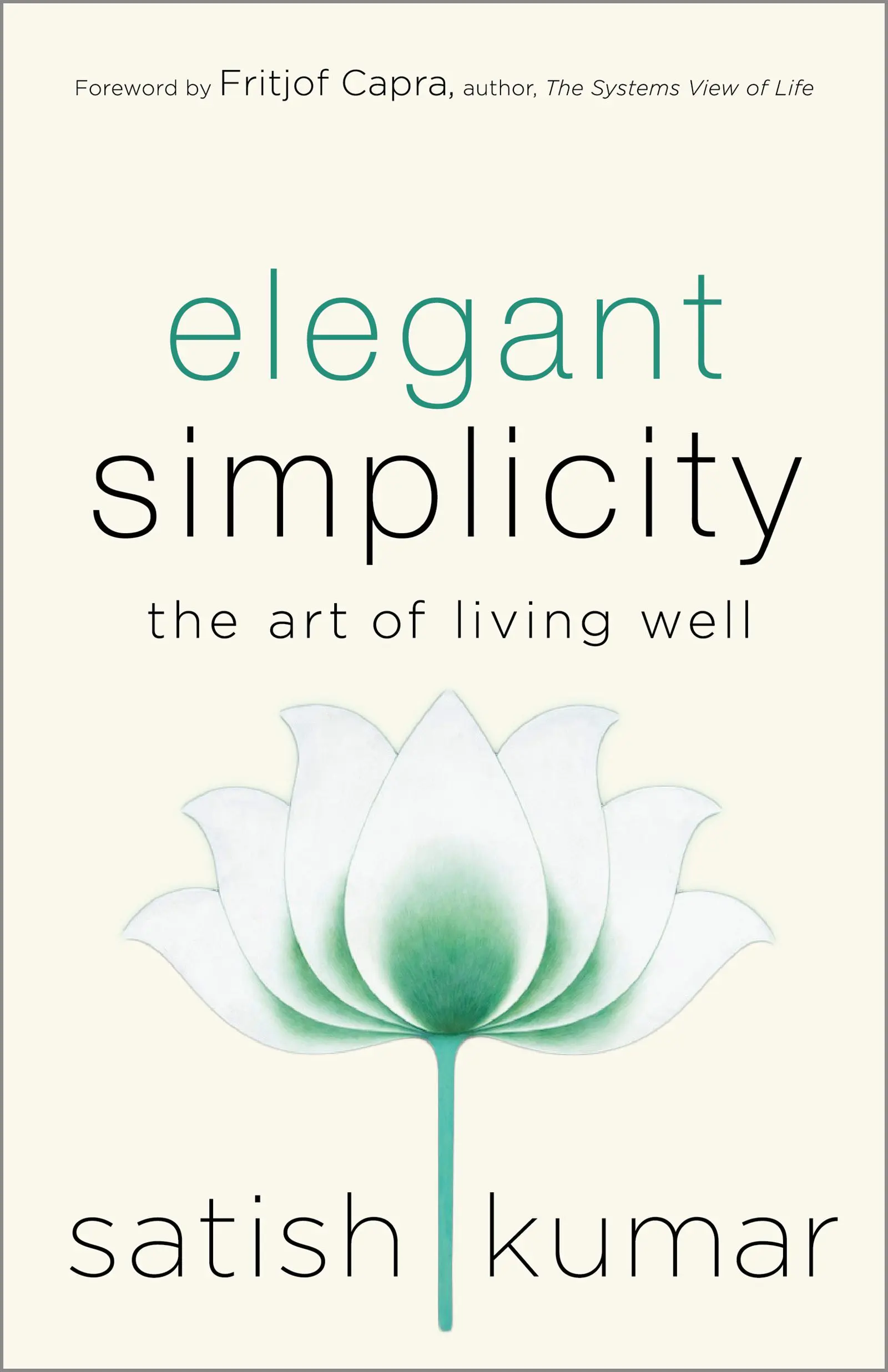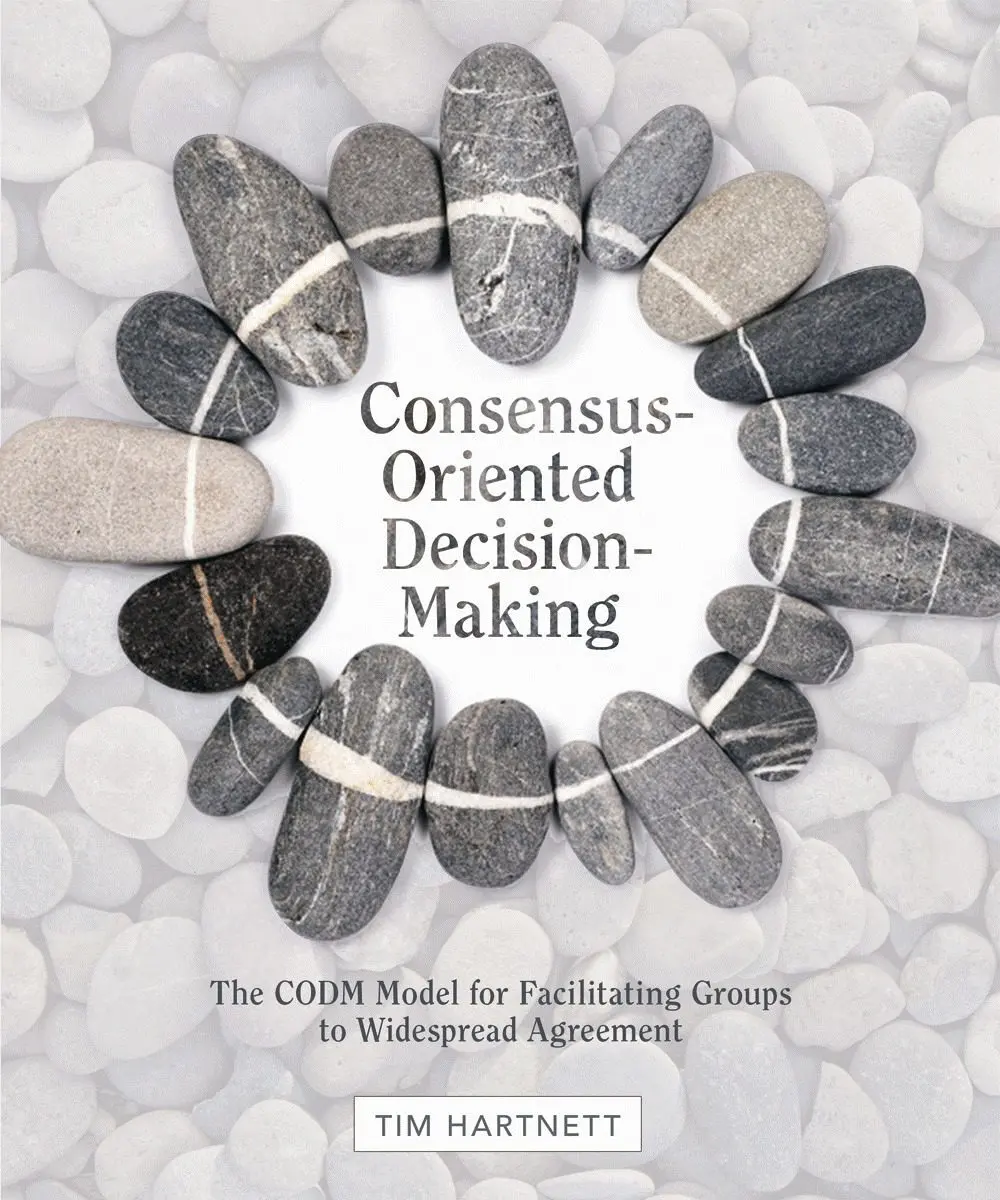
Zoe Weil’s groundbreaking book The Solutionary Way leads us on a transformative journey, where education meets activism. It explores how we can cultivate compassionate and sustainable solutions to global challenges and empowers us to become solutionaries—agents of positive change in the world.
In this author interview, Zoe discusses what it means to be a solutionary and why it is so important today.
What’s a solutionary and how is it different from a problem-solver?
A solutionary is someone who identifies unjust, unsustainable, and inhumane systems and transforms them so that they do the most good and least harm for everyone – people, animals, and the environment. Embedded in the definition is the ethical imperative to avoid causing harm to any individuals or groups. This makes a solutionary different from a problem-solver. Engineers can solve the problem of blowing up a mountaintop for coal removal or damming a river, but they are not solutionaries because in solving the problem, they are causing significant harm. A solutionary is also different from a humanitarian. Humanitarians strive to relieve suffering and mitigate the impacts of harms; they are not focused on addressing the causes of suffering and harm. We need humanitarians of course, but without solutionaries, the problems causing harm will persist.

Why do we need solutionaries and why would people want to become solutionaries?
We face many problems in our communities, nations, and the world. With ever-increasing polarization it’s become harder to collaborate to solve these problems. Solutionaries are bridge-builders. They bring a solutionary mindset to conflicts and issues. They are willing to listen to all stakeholders in their efforts to develop systems that are sustainable, just, and humane for everyone. Essentially, solutionaries have the motivation and capacity to truly solve problems. While this isn’t easy work, it’s incredibly rewarding. Who wouldn’t want to build deep, collaborative, meaningful relationships that lead to positive change?

Tell me a story of the impact of solutionary thinking on individuals and their communities.
At the Institute for Humane Education where I work, we are endeavoring to shift the education system so that learning to be a solutionary is part of the curriculum. What we are seeing isn’t surprising: young people love learning to be solutionaries! They feel empowered, inspired, engaged, and rewarded as they use their academic skills to make a difference. Recently, we interviewed high school seniors who’d participated in a solutionary unit when they were in sixth grade. Six years later they said it was the most transformative part of their education. Multiply this by hundreds of thousands and you can just imagine the impact that a growing solutionary movement will have.

Currently a lot of people are feeling anxiety and even despair; why are you hopeful?
In my own lifetime I’ve seen extraordinary progress made in a host of areas. Extreme poverty has gone from 50% to below 10% of the population since I was born. Less than half of people in the world had electricity when I was a child. Now more than 90% do. In many US states, people of different races couldn’t get married. With the passage of the Civil Rights Act and the Supreme Court striking down anti-miscegenation laws, there is now greater racial justice. Few women aspired to careers beyond nursing, teaching, and secretarial work. Now, in the US, more girls now go to college than boys, and around the globe the great majority of girls go to school. When I was born, rivers and lakes were catching on fire in the US because they were so polluted, and smog and soot coated US cities. The air and waterways in the US are now cleaner than they were thanks to the Clean Water Act and the Clean Air Act. And when I was born, few cared about the plight of animals. Now most people in the US think animals should be protected from cruelty. We have so far to go to achieve justice, sustainability, and a humane future for people and animals, but it’s important to recognize how much worse things were. This reminds us that a better world is possible. To be clear, I don’t always feel hopeful, and I’m frequently anxious given the ways in which hard-won rights are being rolled back and the potentially catastrophic impacts of climate change if we don’t make faster progress, but I believe we can create a truly equitable, peaceful, and healthy world if we become solutionaries.

As a solutionary, what system are you trying to change?
I’m trying to change the education system because it’s the root system underlying every other societal system. When schools prepare students to be solutionaries, those students will enter every field and profession and will be able to influence transformation in positive ways. We are starting to see this vision take hold in nearly two dozen countries on six continents. Currently, too many young people feel anxious and even hopeless. We must remind them they can be agents of positive change by giving them the tools to be solutionaries who know how to build a world where all can thrive. With my book, The Solutionary Way, I’m now giving everyone who yearns for a better future the path and hopefully the inspiration to do this as well.


